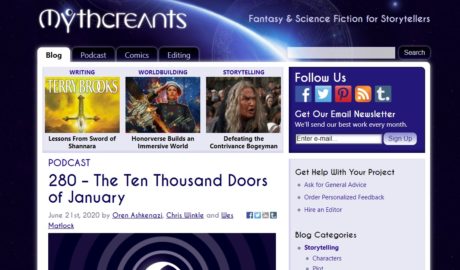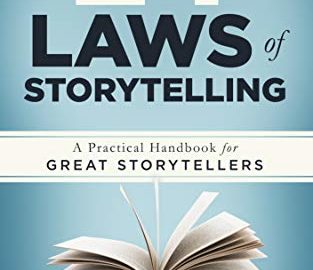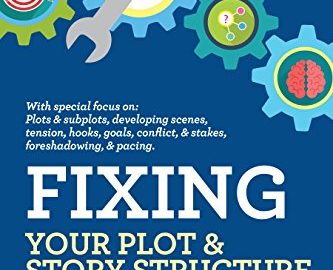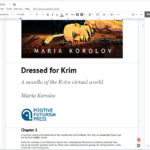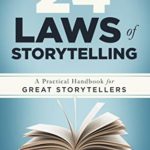
Latest News
14 reasons to use Google Docs to write
I use Google Docs. Most writers use Microsoft Word, Scrivener, or Google Docs to write their novels, with a few other, lesser-known platforms thrown in. I also use other platforms, including Word and Filemaker — but I like Google Docs for writing groups because of its great collaboration features. Plus,
Free book — first in the Lady Astronaut series
A couple of people in this group have talked about Mary Robinette Kowal’s The Calculating Stars. The book won the 2019 Nebula Award for Best Novel, the 2019 Locus Award for Best Science Fiction Novel, the 2019 Hugo Award for Best Novel, and the 2019 Sidewise Award for Alternate History.
Using Zoom for writing groups
New update, June 18: I’ve started a new virtual Zoom-based MeetUp group for speculative fiction writers. If you write science fiction, fantasy or horror, check us out. Update: Since this post was first published (on my personal blog), several people have contacted me from all around the country wanting to
Resources
Top science fiction and fantasy websites
Analog Science Fiction and Fact Asimov’s Science Fiction Aurealis Beneath Ceaseless Skies Clarkesworld Magazine Daily Science Fiction Dark Fireside GUD Heroic Fantasy Quarterly Interzone Kasma Lightspeed Mad Scientist Journal The Magazine of Fantasy & Science Fiction PodCastle Pseudopod Space and Time Magazine Strange Horizons Tor.com
Fiverr
I’ve been recommended Fiverr for a year now, and several members of the writing groups I’m in have also used the service. It’s like eBay, but for freelance professionals. You can use it to find artists, copy editors, book designers, marketers, website developers — anything you need. Prices start at
Writing advice sites
Writer’s Knowledge Base Huge database of more than 40,000 articles about writing. Always my favorite place to start to research any writing problem (other than Google, of course). These are the best articles, from the top writing blogs. I also subscribe to Elizabeth Spann Craig’s weekly list of the best
Otter.ai
Some authors like to dictate instead of typing or writing by hand. I have ideas sometimes when I’m walking, or lying in bed at night, or driving. Most dictation apps just let you dictate a sentence at a time, or a paragraph, and stop transcribing whenever you pause to think.
Recommended Books
The 24 Laws of Storytelling by Jonathan Baldie
Great summary of the top things you should watch out for in a book, and very readable. Here’s the summary: Law 1: Be cruel to your characters Law 2: End quickly at the moment of catharsis Law 3: Trust flaws more than strengths Law 4: Show, don’t tell Law 5:
Plotting Your Novel with The Plot Clock by Joyce Sweeney, Jamie Morris, and Tia Levings
This is a short book — free on Kindle Unlimited — and has a cute little clock device for setting up plots. It’s the same Save-the-Cat beatsheet kind of thing, but with the beats arranged in a circle instead of a line. But it’s cute, if you want to have
Take Off Your Pants! By Libbie Hawker
Several people in the Western Massachusetts writing groups are reading this now, based on the recommendation of a member of Maria’s Sunday afternoon writers’ group. Hawker talks about the same things as many of the other books I’ve read on this topic — start with a theme, focus on a
Fixing Your Plot & Story Structure Problems by Janice Hardy
Janice Hardy runs the awesome Fiction University site. In this book, she goes through a whole bunch of possible plot problem, like how to fix endings that don’t resolve the core conflict, or dealing with too much or not enough setups, or fixing endings that don’t involve the protagonist, or




